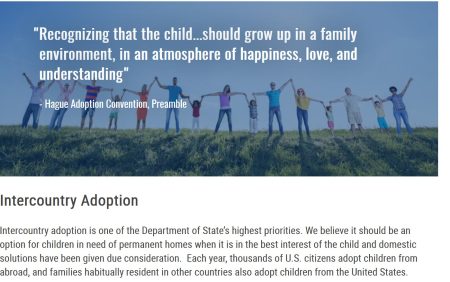by Ernest Huber, ©2022

(Jul. 16, 2022) — In the winter of 1983, having been deployed with my ship to the Western Pacific, I stood with my men inside an orphanage in Seoul, South Korea. It was cold, dimly lit, and smelled of kerosene lamps and charcoal cooking fires. A cute ten-year-old little girl with sniffles, ragged clothes, and sooty face looked up at me and in broken English sang “Silent Night.” Then I sang to her. Remembering my foster homes, I held her and silently cried. Her name was Una.
I returned to that orphanage several times to visit Una, and take her on much needed shopping trips, always accompanied by a young lady chaperone. Una’s knowledge of that huge and complex city was amazing, and she would delight in taking my hand and leading me easily through the endless maze of streets, alleys, and shops. Our mutual fondness grew.
Seoul was not a normal port of call. It was a city where all police carried M-16s with safeties off, fingers on the triggers, and would shoot for any reason. All bridges had manned machine gun emplacements. The North Koreans were sending mini-subs to sink our moored ships, so the Navy spent a lot of time underway. One of my duties in time of war was to direct amphibious landings on to North Korean beaches. South Korean streets were very long and wide for good reason as I found out while window shopping one day. I turned and suddenly saw no one on the normally packed sidewalks. Then I heard the roar and saw fighter jets flying past me about one hundred feet above the street. I was sure WWIII had just started, but then a nice older woman appeared out of nowhere, tugged my sleeve to follow her down a long escalator into a massive underground Seoul and was told it was a normal attack drill. I later learned that many North Korean POW camps for South Koreans were to be made by encircling towns and starving the inhabitants to death. That included Una’s city, and I could not leave her there.
One day I took her to the Seoul Tower, similar to our Space Needle. Our chaperone wasn’t a very good interpreter, so I asked one of the Tower guides to interpret for Una and me. By that time a crowd had gathered around us because I was wearing my officer’s uniform. I knelt beside Una and told her that I loved her and wanted to adopt her as my daughter, she replied that she also loved me and also wanted to be my daughter. We hugged and cried joyfully. The interpreter cried, and the many people around us who heard the interpretation also cried – and applauded. What a wonderful day that was.

Una and I later went to the United States Embassy to get the paperwork started. My ship had to leave but returned two weeks later. I headed straight for the orphanage and Una. The chaperone met me at the gate with bad news. She said that Una was not an orphan, and that the facility was not an orphanage. Una had parents, and the orphanage was a scam run by the Korean mafia to defraud massive amounts of sympathy money and material from the US military. She said the Seoul police were being bribed and that the only way to stop the criminals would be through massive media exposure. I told her I didn’t care, because I intended to adopt Una anyway. She said she would send Una out, but thought this would be the last time I would see her. Una then came running to me crying. We hugged and she put her prized possession in my hand: a small porcelain figurine of a little girl and her puppy. We cried grievously, pledged our love, then she ran back into the “orphanage.”
The Seoul Chief of Police, Korean Americans, others, and I later tried to find her, but we couldn’t. She had simply disappeared, and I never saw Una again. Una’s figurine has been on my desk ever since she gave it to me over thirty-nine years ago. It always looks at me.
Ernest Huber

Ernest Huber is a retired Naval officer. He graduated from Gonzaga University and Gonzaga Law School, and was an Army military intelligence officer, counterterrorism watch commander, GOP area chair, and Congressional candidate.
